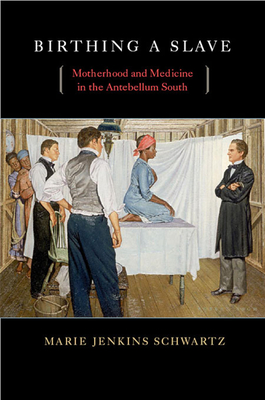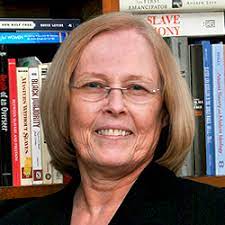

 Harvard University Press
Harvard University Press
Birthing a Slave: Motherhood and Medicine in the Antebellum South


Key Metrics
- Marie Jenkins Schwartz
- Harvard University Press
- Paperback
- 9780674034921
- 8.1 X 5.4 X 1.2 inches
- 1.1 pounds
- Social Science > Slavery
- English
 Secure Transaction
Secure TransactionBook Description
The deprivations and cruelty of slavery have overshadowed our understanding of the institution's most human dimension: birth. We often don't realize that after the United States stopped importing slaves in 1808, births were more important than ever; slavery and the southern way of life could continue only through babies born in bondage.
In the antebellum South, slaveholders' interest in slave women was matched by physicians struggling to assert their own professional authority over childbirth, and the two began to work together to increase the number of infants born in the slave quarter. In unprecedented ways, doctors tried to manage the health of enslaved women from puberty through the reproductive years, attempting to foster pregnancy, cure infertility, and resolve gynecological problems, including cancer.
Black women, however, proved an unruly force, distrustful of both the slaveholders and their doctors. With their own healing traditions, emphasizing the power of roots and herbs and the critical roles of family and community, enslaved women struggled to take charge of their own health in a system that did not respect their social circumstances, customs, or values. Birthing a Slave depicts the competing approaches to reproductive health that evolved on plantations, as both black women and white men sought to enhance the health of enslaved mothers--in very different ways and for entirely different reasons.
Birthing a Slave is the first book to focus exclusively on the health care of enslaved women, and it argues convincingly for the critical role of reproductive medicine in the slave system of antebellum America.
Author Bio
Marie Jenkins Schwartz, Ph.D. taught at Anne Arundel Community College, Arnold, Maryland, before accepting a position at the University of Rhode Island where for twenty years she offered courses in the history of slavery and in the history of the early United States.
She is currently professor emeritus of history at URI and an independent scholar and writer. Her latest book, called Ties That Bound: Founding First Ladies and Slaves (Chicago University Press in 2016), depicts the world created by Martha Washington, Martha Jefferson, Martha (Patsy) Jefferson Randolph, Dolley Madison and the people they enslaved. She has begun another book on the First Ladies (Scandal in the White House: First Ladies and Presidential Deceits), which argues that the reaction of First Ladies to the scandalous behavior of husbands has mattered for the stability of the nation.
Schwartz is the recipient of two fellowships from the National Endowment for the Humanities and other research awards from the American Historical Association, the John Nicholas Brown Center for the Study of American Civilization at Brown University, the American College of Obstetricians and Gynecologists/McNeil Foundation and from the University of Rhode Island, including its Center for the Humanities.
In 2000, her book Born in Bondage won the Julia Cherry Spruill Publication Prize for Best Book in Southern Women’s History, given by the Southern Association for Women Historians.
Education
1994 Ph.D. University of Maryland, College Park
1987 M.A. George Mason University, Fairfax, Virginia
1984 B.A. George Mason University, Fairfax, Virginia
Source: The University of Rhode Island
Community reviews
Write a ReviewNo Community reviews




